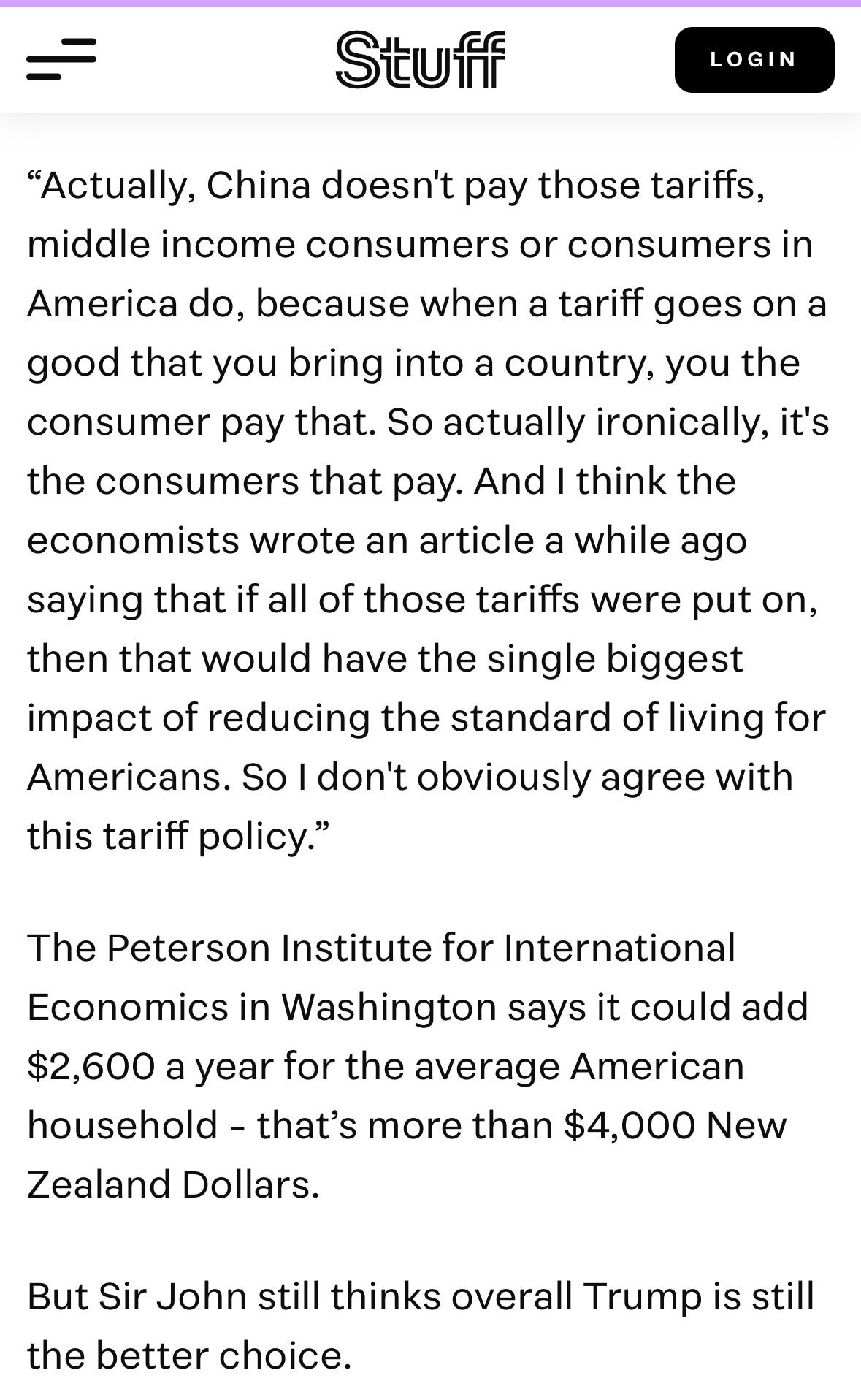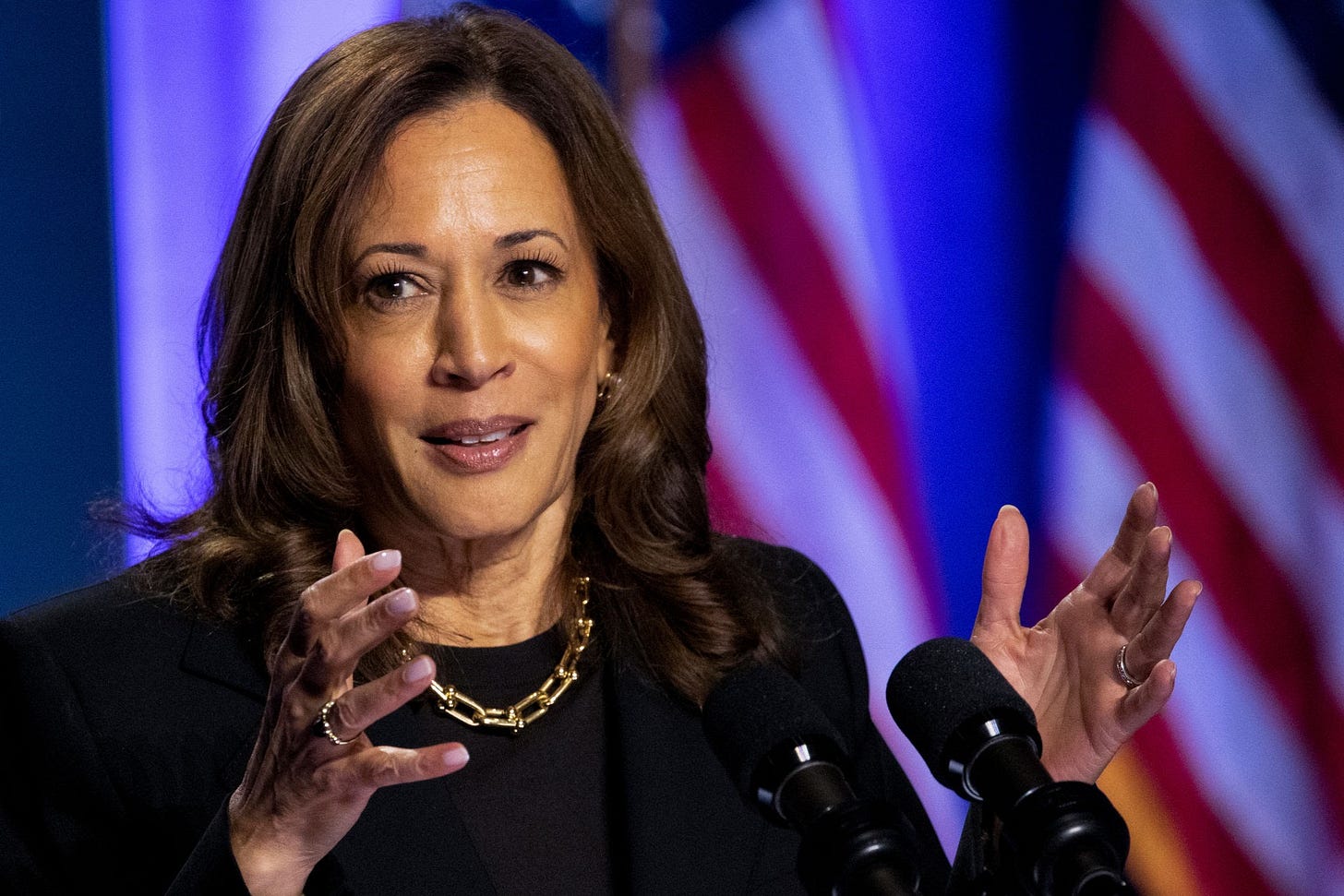Neoliberalism will defend itself. It must, because it has amassed power and wealth in those who are most invested in it.
Take John Key, for instance, who has taken the unusual and controversial move of quietly endorsing Donald Trump as a former NZ PM, claiming that not only is Trump likely to win, but he should win, that he‘s the preferred outcome. It would better for the economy.
Why? Lower taxes.
And a bunch of guesses.
Key doesn’t agree with the sinophobic tax policy, but he does support Trump’s plans for lower taxes and everything else Trump “probably” supports. Trump is not particularly known for being predictable, so that seems a bold statement for Key to make, until you realise Key’s economic assurances come not from Trump, but from the other uber-wealthy conservative alluded to in this article: Peter G Peterson, the billionaire who started the Peterson Institute, a neoliberal think tank funded by some incredibly powerful individuals and companies
Key has a fantastic history with Peterson: his other foundation, the Peterson Foundation, basically won him two elections. While the Peterson Foundation was established to sabotage Barack Obama’s 2012 campaign by convincing people that US debt ceiling was at crisis point and the size of the state and its debt must be reduced at all costs to avoid catastrophe, this worked wonderfully for Key in a wider international sense as the focus and effects of that conversation reverberated through New Zealand politics.
The Peterson Institute is doing important work in the defence of neoliberal economics; in fact just four days ago, Jason Furman of the Harvard Kennedy School, who was himself associated with the Obama administration, gave a speech acknowledging neoliberalism is under attack and defending it by conflating neoliberalism with the field of economics as a whole and reinforcing the importance of the debt sustainability constraint that anti-neoliberal economists are calling into question. He also, very interestingly (given Key’s statement), describes left-wing neoliberalists as “willing to pay an economic price to prevent Trump from becoming President again”, casting doubt on Harris’s economic competence — or perhaps just her ability to steer the economy while not adhering strictly to neoliberal principles.
Perhaps the most striking indication of this philosophical battle is his use of the diminutive “Kamala-nomics”, elevating her policies to the level of Reaganomics and putting them directly against each other.
Furman also discusses, and dismisses, the idea that concentrating power in large businesses is bad for democracy, a very relevant topic for New Zealand right now given our lobbyist infestation. Instead, he frames this as politicians protecting small businesses at the expense of consumers (a philosophy he isn’t against, per se, as he believes as a leftists that sometimes economic good should be sacrificed for other benefits). But in doing so, he again creates a false dichotomy where the summation of his argument is that we need to be more frank when talking about tradeoffs for economic policy. This reflects the narrow thinking of neoliberalists: there is no alternative, no outside system to turn to, no better economic philosophy to shift towards. We just have to do neoliberalism better.
At the end of the day, this boils down to taxes. Higher taxes threaten a return to the welfare state, so neoliberalists on the right and the left and everywhere else they’re hiding must come out to debunk this idea from their various different, but ultimately not, positions on how to “fix” this economic and political mess we are very clearly in.
And the neoliberalists are nervous. New Zealand Labour is signalling for the first time in forty years that they want to shift away from the artificial debt ceiling. Harris’s economic position is far too far to the left for them, especially when Trump is sitting there with his Atlas-written economic plan for locking in the next thirty years of conservative politics, finishing off the job they started in 2016 with the total corruption of the judiciary and the attempt to seize executive power.
What does Key think of that? He “doesn’t know”. Which either makes him stupid, or a corrupt wealthy businessman who doesn’t care about democracy or international security or even politics at all — only economics.
And John Key is far from stupid.
Because it’s not about the politics. It’s not about the separation of powers, or the global political repercussions of a Trump presidency, or the effects on the climate and the damage that Trump WILL do to progress on the environmental front, in the same way that Key’s own protege is screwing over the planet here in New Zealand.
It’s about the economy. It has only ever been about the economy. About furthering and protecting neoliberal economics. About protecting the wealth that rises on it.
Thats why in 2022 Key said that he would have voted for Trump and the anti-democracy former president of Brazil, Bolsonaro, while at the same time indicating no small amount of discomfort with the idea, even admitting that Bolsonaro is “crazy” and voting for Trump might not be the “right” decision.
But he would vote for them still, and he’ll encourage others to. Because he’s rich, a director of a large American company, and an owner of God knows how many shares. And, y’know, his legacy for our country is the continued force of neoliberalism and our fucked housing market, since the flag thing didn’t work out for him. And that’s enough to say “screw democracy”, I guess.
Recently, there has a been a stream of reporting involving interviews with John Key. Not about Luxon and the shambles he’s making of the country and our economy — no, never about that. Just a puff piece on his helicopter, some light promotion of China, his much lighter disapproval of National‘s anti-Maori agenda… just small writings here and there to let you know he’s still around.
Remember when the CEO of New Zealand was a bit more like a regular guy? He’s still there! National and its neoliberalism was likeable back then, right? Remember that time? No, don’t look at the bald idiot. Or the American less-bald idiot. Look at this rich guy, who does a much, much better job of pretending he’s on the level of the regular person. He used to live in a state house, you know!
One News’ Logan Church said something several months back that stuck in my mind: he’d never met a New Zealand Prime Minister who wasn’t a fan of American politics. That’s a very short list of Key, English, and Adern (I don’t think he’d met Hipkins at the time or since). And I suppose a few PM hopefuls, potentially, like Muller, who famously owned a MAGA hat.
But John Key’s answers here make me think that he’s not so much a fan of American politics as he is of their economics.
And who can blame him? He’s got a lot of money riding on it at this point.








Good to read truth about Key and neoliberalism in general. It facilitates wanton greed, and destruction of the ecology that allows us to live on this planet. It’s all in with wars - great for the economy. To hell with the neoliberalists and let’s have an economy for actual human beings.
😱 Never "bought" the Jonkey schtick🤷 He gave me creepy vibes on a personal level, & "Luxon-with-hair" vibes as a leader (except he had more back bone & misdirected intellect) 🤬